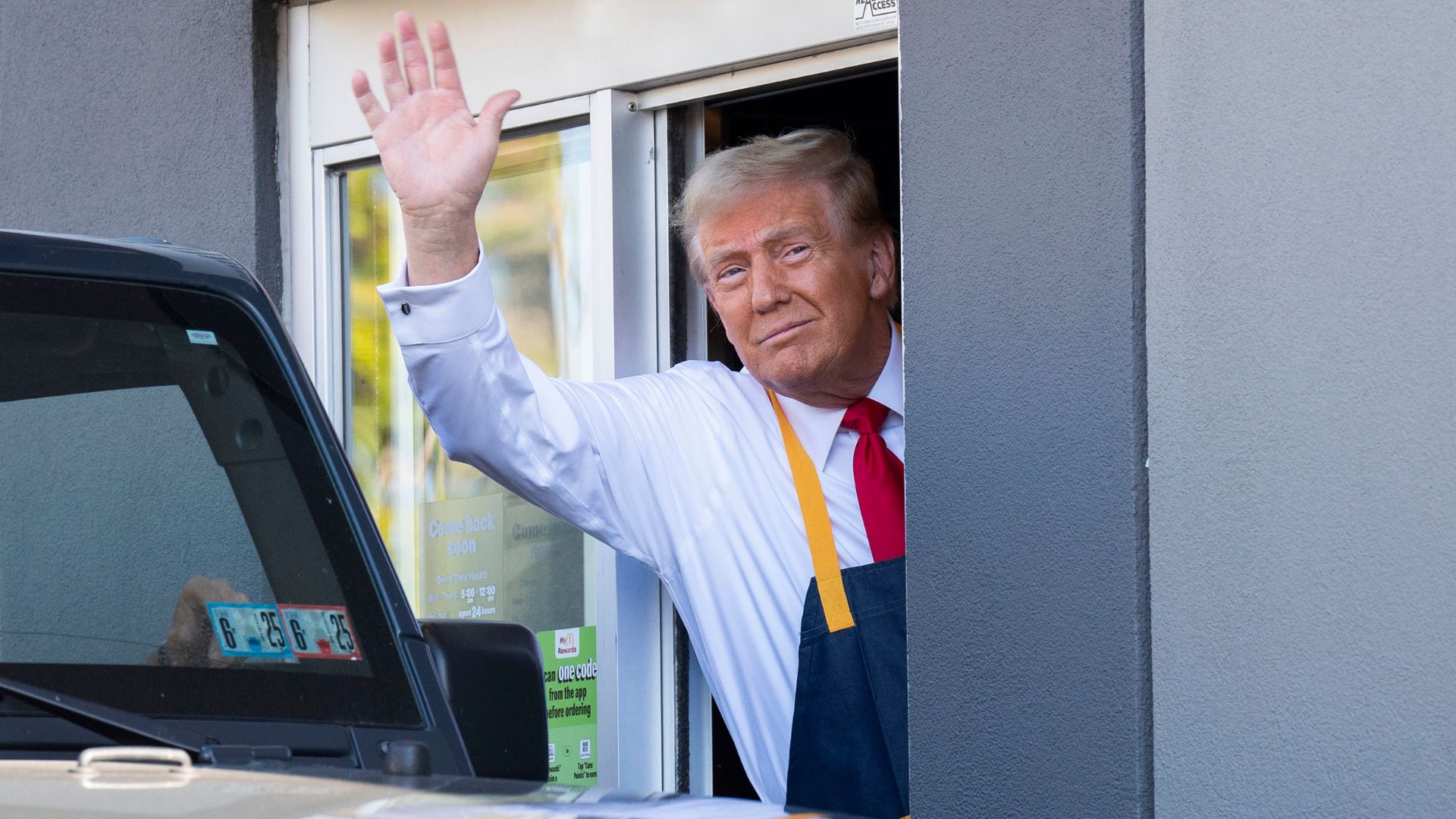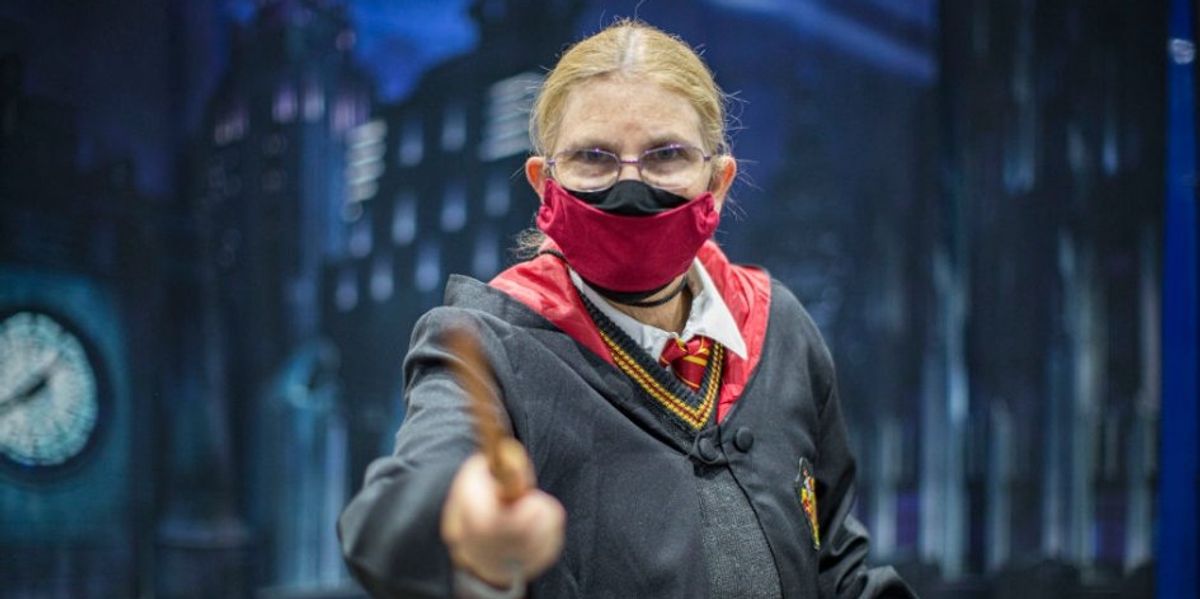Newsweek is under fire for a recent fact-check on a satirical tweet involving a fictional painting that humorously linked former President Donald Trump, Elon Musk, and Robert F. Kennedy Jr.
The tweet, which featured an AI-generated image, was clearly intended as a joke, but the outlet treated it as a serious matter, prompting widespread ridicule online.
The tweet originated from a user named “bone,” who posted an image with the caption: “This 1721 painting by Deitz Nuützen predicted the Trump-Elon-RFK McDonalds dinner.”
This 1721 painting by Deitz Nuützen predicted the Trump-Elon-RFK McDonalds dinner pic.twitter.com/CM9xDNmaKG
— bone (@boneGPT) November 18, 2024
Trump Surges To Victory – Get the Ultimate Trumpinator Bobblehead To Celebrate 2024!
The absurdity of the post was obvious to most, especially given the fictional painter’s name—Deitz Nuützen—a tongue-in-cheek nod to internet humor (“Deez Nutz”).
Despite the clear satire, Newsweek assigned a fact-checker to address the claim. In an article still available on their website as of this writing, the outlet analyzed the tweet, seemingly oblivious to its comedic intent.
RIP @Newsweek
Time to close up shop. You’ll never live this down. pic.twitter.com/KZSShxRLGL
— Courage Is A Habit (@CourageHabit) November 19, 2024
Social media users were quick to criticize Newsweek for failing to recognize the joke, with many questioning the editorial decision to publish such a report.
Even Elon Musk, owner of X (formerly Twitter), joined in mocking the situation, highlighting the absurdity of taking the post seriously.
— Elon Musk (@elonmusk) November 18, 2024
Musk, known for his sharp wit and active engagement online, appeared unfazed by the supposed “misinformation.”
The original poster, “bone,” leaned into the humor, creating an elaborate fictional backstory for the made-up painter.
According to the satirical biography, Deitz Nuützen was a “peculiar and enigmatic Dutch Baroque painter” known for blending traditional art styles with “anachronistic imagery.”
The fabricated details included claims that Nuützen’s works depicted inventions centuries before their time, such as a locomotive in The Flying Horse of Iron, and modern financial scenes in The Gathering of the Elect.
The faux-history even alleged that Nuützen faced accusations of witchcraft during his lifetime for his “visions unbecoming of a Christian artist.”
Deitz Nuützen (1694–1732) was a peculiar and enigmatic Dutch Baroque painter whose work baffled his contemporaries and continues to mystify art historians today. Known for blending traditional artistic styles with strikingly anachronistic imagery, Nuützen’s paintings have been… https://t.co/K209ywUNF2
— bone (@boneGPT) November 18, 2024
Deitz Nuützen (1694–1732) was a peculiar and enigmatic Dutch Baroque painter whose work baffled his contemporaries and continues to mystify art historians today. Known for blending traditional artistic styles with strikingly anachronistic imagery, Nuützen’s paintings have been jokingly referred to as “prophecies in oil.”
Born in the remote village of Nordbeck, Nuützen showed early promise as a painter but was considered eccentric even by the avant-garde standards of his time. His magnum opus, The Feast of the Visionaries (1721), features what appear to be 21st-century fast-food items, depicted with uncanny detail, being consumed by figures resembling modern political leaders. Many dismissed the work as satire, but others whispered that Nuützen had a supernatural gift—or perhaps access to forbidden knowledge.
Nuützen’s other surviving works include The Flying Horse of Iron, a surreal depiction of a locomotive centuries before its invention, and The Gathering of the Elect, which eerily resembles a modern stock exchange. These works earned him notoriety during his lifetime, with some accusing him of witchcraft or heresy. Local records even note that he was once investigated by the church for “visions unbecoming of a Christian artist.”
Despite the controversy, Nuützen lived a reclusive life, producing a small but captivating portfolio of works that blended Baroque aesthetics with bizarre, futuristic elements. His career was tragically short; in 1732, he mysteriously vanished, leaving behind an unfinished canvas depicting glowing rectangles—what many now interpret as a vision of smartphones or computer screens.
Modern conspiracy theorists and art lovers alike have speculated that Nuützen might have been a time traveler, a seer, or simply an artist with an imagination far ahead of his time. Regardless, his works continue to spark debate and fascination, standing as an enduring enigma of art history. Whether prophetic genius or misunderstood visionary, Deitz Nuützen remains a figure shrouded in mystery.
The satirical response only fueled the online ridicule of Newsweek’s fact-check, with users pointing out the growing trend of media outlets struggling to discern obvious humor online.
Of course this is who is fact checking a joke. They wonder why they lost and no one trusts these jokes. pic.twitter.com/nJ60bQuCVM
— MISTAKES WERE MADE (@MISTAKES_W_MADE) November 19, 2024
While those instances were political, this error highlights a different form of media misstep—one where satire is treated as a serious issue.
While fact-checking is a crucial element of journalism, critics argue that incidents like this undermine credibility by focusing on trivial matters instead of more pressing issues.
As the tweet and its accompanying story continue to circulate, Newsweek’s decision to fact-check the joke serves as a reminder of the challenges traditional media face in navigating the fast-paced and often humorous world of online content.
The opinions expressed by contributors and/or content partners are their own and do not necessarily reflect the views of LifeZette. Contact us for guidelines on submitting your own commentary.
Read the full article here






![Joe Biden Criticism Is Useless—‘He Could Spend His Time on the Beach’ [WATCH] Joe Biden Criticism Is Useless—‘He Could Spend His Time on the Beach’ [WATCH]](https://www.rvmnews.com/wp-content/uploads/2024/09/2024.09.18-09.49-rvmnews-66eaa20c88f7a.jpg)



